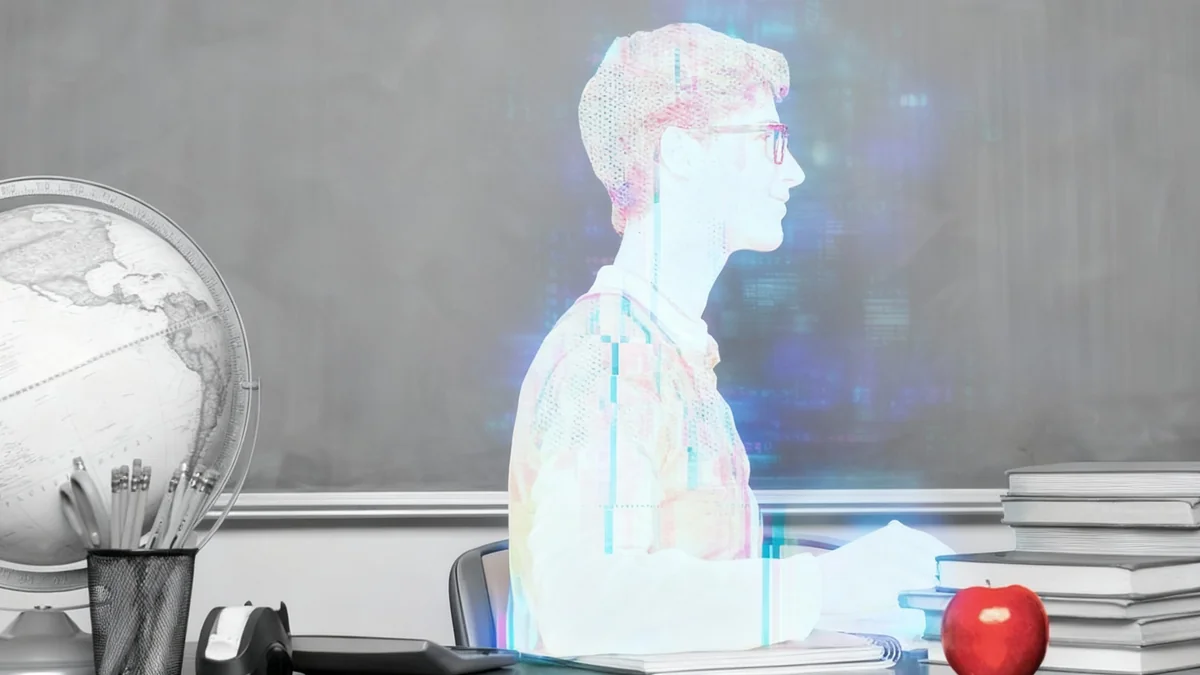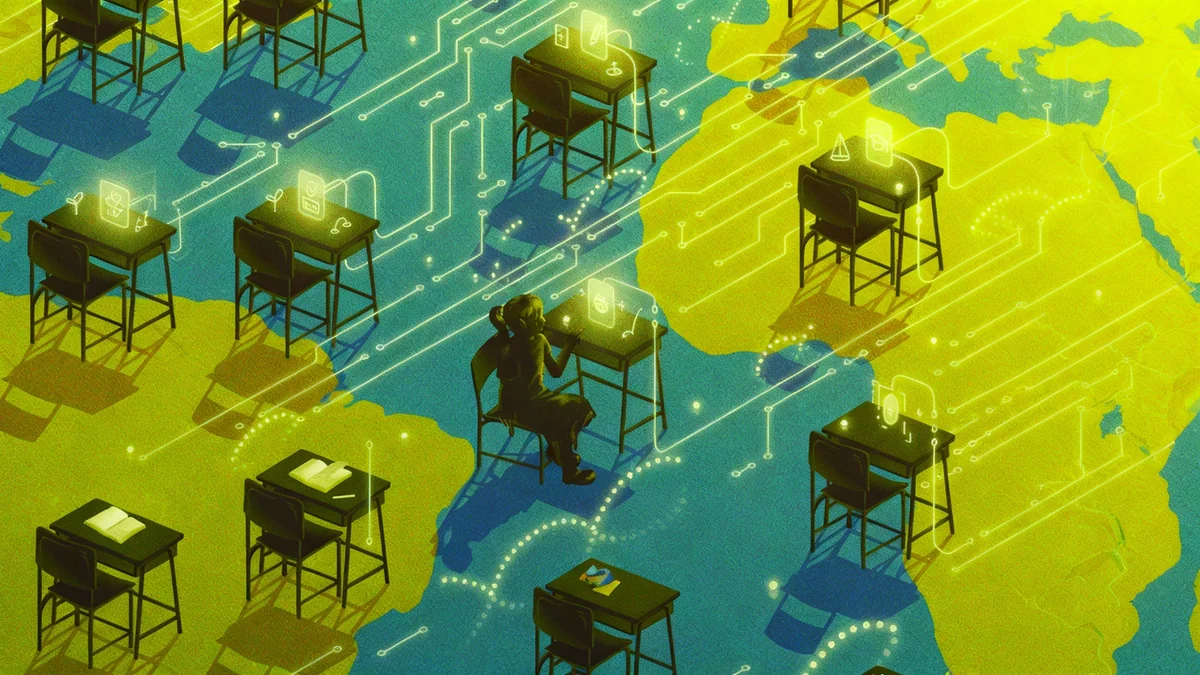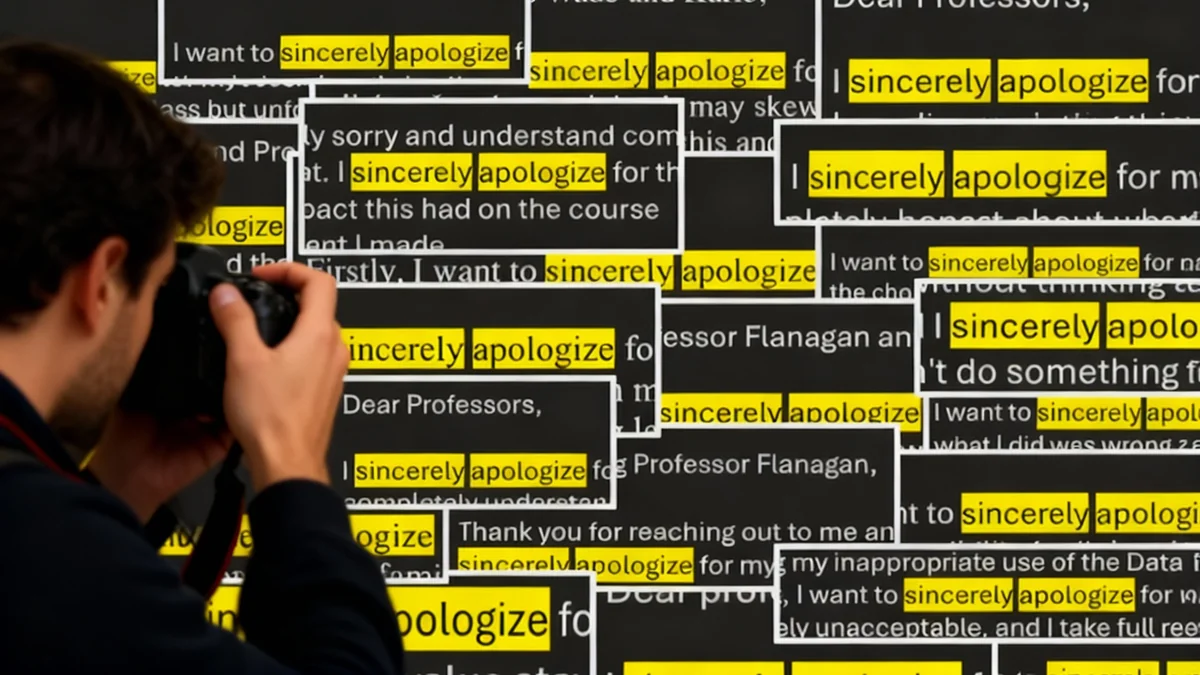A student at Adelphi University has filed a lawsuit against the institution after being accused of using artificial intelligence to write a history essay. The student, Orion Newby, 19, claims the accusation is false and that his writing style is the result of his neurological disabilities and the specialized tutoring he receives.
The legal action, filed in Nassau County state court, challenges the university's disciplinary process and its reliance on an AI detection tool called Turnitin. This case highlights a growing national debate over the accuracy of AI detection software and its application in academic settings.
Key Takeaways
- Orion Newby, an Adelphi University student, is suing the school for wrongly accusing him of using AI on an essay.
- Newby argues his unique writing style, flagged as AI-generated, is influenced by learning disabilities and intensive tutoring.
- The university's decision was partly based on a report from the AI detection software Turnitin, which experts say can be unreliable.
- The lawsuit claims the university violated its own policies by denying Newby an appeal, and it raises concerns about fairness for neurodivergent students.
Details of the Accusation
The dispute began in the fall semester of 2024 when Orion Newby, a freshman history student, submitted an essay for his World Civilizations 1 class. His professor, Micah Oelze, had previously warned students against using AI tools like ChatGPT.
According to court documents, Professor Oelze found an essay submitted by Newby to be suspicious. He noted the writing seemed "too advanced" for a first-year student and used phrases like "apostolic journeys," which he considered unusual vocabulary for that academic level.
The professor used Turnitin, an AI detection program, which flagged the essay as "100% AI." While Oelze stated he did not treat the software's finding as conclusive proof, it was a significant factor in his decision to report Newby for an academic integrity violation.
The Role of AI Detection Software
Tools like Turnitin analyze text for patterns commonly found in AI-generated content, such as perplexity (complexity) and burstiness (variation in sentence length). However, their reliability is a subject of intense debate. Many universities now advise faculty against using these tools for disciplinary action, citing the risk of false positives. Turnitin itself states its tool has a false positive rate of about 1% and should not be the sole basis for an academic misconduct finding.
Student's Defense and University's Response
In his lawsuit, Newby vehemently denies using artificial intelligence. He explains that his writing process is heavily influenced by his diagnosed learning and neurological disabilities, which include language and auditory processing disorders, as well as ADHD. He has received specialized support for these conditions since he was two years old.
Newby was enrolled in the "Bridges to Adelphi" program, a specialized support service for students with nonverbal or neurological-social disorders. The program, which costs over $5,000 annually on top of the university's approximate $49,000 tuition, is designed to provide individualized academic and social support.
"I was just devastated," Newby stated in an interview. "I was very overwhelmed and stressed out, you know, and I thought my career at Adelphi was going to be over."
His family supports his claims, describing a diligent process involving handwritten notes and hours of work with tutors to refine his essays sentence by sentence. The lawsuit argues that this intensive tutoring process, meant to help him overcome his disabilities, contributed to the polished writing style that was flagged as artificial.
Adelphi University has defended its actions. In court filings requesting the lawsuit's dismissal, the university maintained that Newby violated its code of academic integrity and that it followed all proper procedures. University officials described Turnitin as a "reliable, accurate and an important tool" for addressing the improper use of AI.
The Disciplinary Action and Legal Challenge
Following the professor's report, Adelphi's academic integrity officer ruled against Newby. He was not failed or suspended but was required to complete an online anti-plagiarism workshop. The ruling also noted that a second offense could lead to more severe consequences, including suspension or expulsion.
According to the lawsuit, Newby's request for an appeal was denied. His legal team argues this denial violates the university's own Student Bill of Rights, which guarantees a fair and impartial hearing. Newby's attorney, Mark Lesko, described the university's handling of the situation as "heavy-handed," especially given the student's known disabilities.
Widespread AI Use in Education
The challenge faced by Adelphi is not unique. A 2025 report from Copyleaks, an AI text analysis platform, found that nearly 90% of American students surveyed reported using AI in their schoolwork. This widespread adoption has forced educational institutions to rapidly develop policies for both ethical AI use and academic dishonesty.
The lawsuit seeks to have the university's finding of wrongdoing overturned. It also requests a refund for tuition and fees paid, along with compensation for the harm the ruling allegedly caused. A court hearing on the lawsuit and the university's dismissal request is scheduled for November.
Broader Implications for Education and Technology
This case raises critical questions about academic integrity in the age of AI. Experts in higher education and technology express caution about relying on automated detection tools. Emily Isaacs, an associate provost at Montclair State University, which advises against using the tools, noted, "There's no smoking gun" to definitively prove AI generation.
Furthermore, some research suggests that AI detection software may be biased against non-native English speakers and individuals with neurological conditions like autism, whose writing styles can differ from the norm. Summer Chambers, a linguistics doctoral student at George Mason University, has examined this issue, though she notes more research is needed.
As universities navigate this new technological landscape, the outcome of Newby's lawsuit against Adelphi could set an important precedent for how schools balance the use of anti-cheating technology with the rights and unique circumstances of their students.





